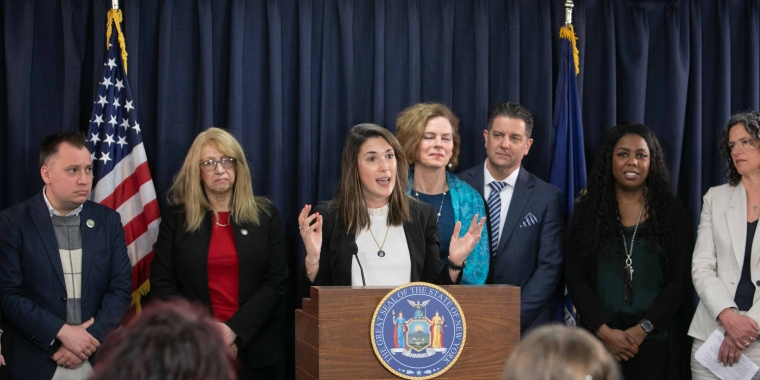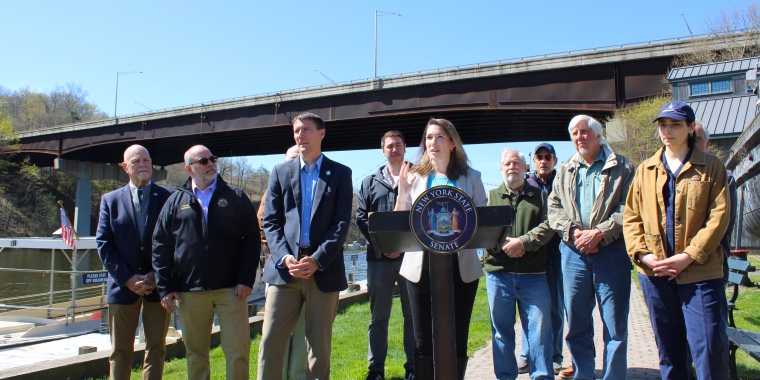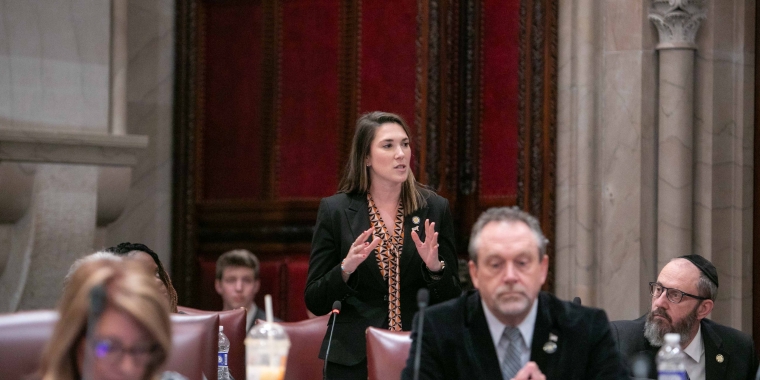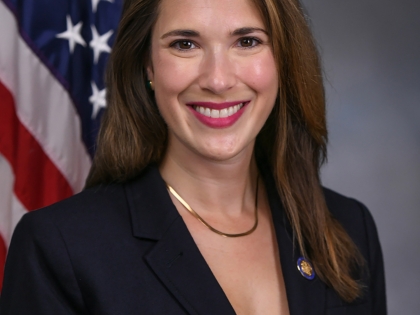
Hinchey Bills Pass as part of Senate Legislative Package to Strengthen EMS
May 30, 2024
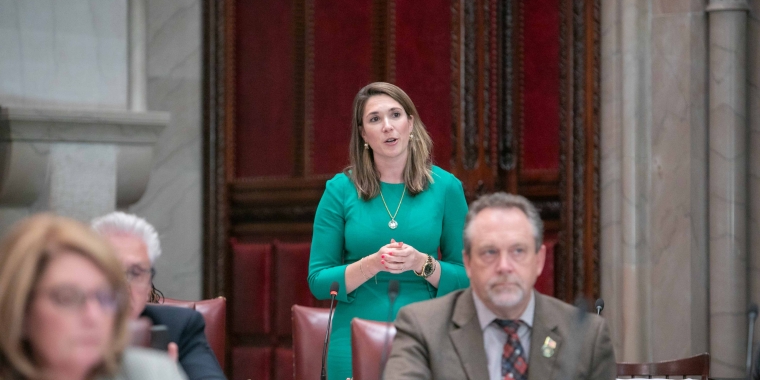
ALBANY, NY – On Wednesday, the New York State Senate passed a legislative package to address key challenges facing EMS providers across the state, including several bills sponsored by Senator Michelle Hinchey: S8486A, which would create three new reimbursement sources for EMS, and S6226A, which would expand the ability of motor vehicle ambulance services to administer life-saving blood transfusions. Senate Bill S4020C-Mayer/Hinchey also passed as part of the Senate’s package and would deem EMS an Essential Service in the State of New York.
“EMS is a pillar of our healthcare system, especially for New Yorkers living in rural and medically underserved communities where a drive to the hospital could take upwards of an hour,” said Senator Michelle Hinchey. “All across New York State, local EMS providers are in crisis, facing severe challenges from inadequate reimbursement to onerous rules that prevent them from delivering life-saving care, like blood transfusions, all while the demand for their services increases. I’m incredibly proud we were able to pass a legislative package in the Senate that includes two bills I sponsor addressing these issues, among other measures, like recognizing EMS as an Essential Service, that has come directly from experts in the field. This package is vital to strengthening EMS across New York State, and we hope to see the same support in the Assembly before the end of session.”
The bills sponsored and co-primed by Senator Hinchey include:
- Allowing EMS Reimbursement for Treatment-In-Place, Non-Hospital Transport, and Telemedicine: This bill, S8486A-Hinchey, would allow EMS providers to receive Medicaid reimbursement for (1) treating patients at the scene of an injury, including their homes; (2) transporting patients to approved healthcare destinations, such as mental health facilities or urgent care; and (3) facilitating a connection to a doctor via telemedicine. Under the current system, EMS providers are only reimbursed for transporting Medicaid enrollees to hospital emergency rooms. Senator Hinchey’s bill transforms this outdated model, which would mean quicker home-based care for patients, and would especially benefit seniors and community members with mobility challenges. It would also allow individuals to be taken directly to non-ER facilities to ensure they receive the care they need without delay while also reducing crowding in ERs.
- Authorizing Ground Ambulances to Carry and Transfuse Blood: This bill, S6226A-Hinchey, would permit all motor vehicle ambulance and advanced life support response services to qualify to carry blood products and administer transfusions to trauma patients being taken to, from, or in between hospitals. Currently, motor vehicle ambulance services are only authorized to carry blood products and distribute transfusions to patients being transported between hospitals; however, are prohibited from doing so during prehospital care.
- Deeming EMS an Essential Service: This bill, S4020C-Mayer/Hinchey, would recognize EMS as an essential service, allow special districts to be created to fund EMS services, and provide for a statewide comprehensive emergency medical system plan.
Other EMS bills that passed the Senate with Senator Hinchey’s support include:
- Increasing Volunteer Firefighter/Ambulance Worker Tax Credit: This bill, S7286A, would increase the volunteer firefighter and ambulance workers’ personal income tax credit from $200 to $800 for eligible individuals and from $400 to $1,600 for eligible married joint filers.
- Uniform Ambulance Service Assessment: This bill, S5122, would allow The NYS Department of Health (DOH) to charge ambulance service providers a universal service assessment fee to cover increased medical assistant payment rates for their services.
###
Share this Article or Press Release
Newsroom
Go to Newsroom